Pocket Money for Kids

Understanding the value of money is a crucial life skill that kids need to grasp early on. While adults are well aware of money's significance in shaping our lives, children often perceive it as an abundant resource that appears almost magically.
As parents, it's our responsibility to teach children the real value of money. Whether it's introducing children to the basics of budgeting or discussing complex financial concepts with teenagers, there's no better time than now to start imparting these lessons.
This blog delves into the key principles that lay the foundation for children's understanding of pocket money, bank accounts, and financial responsibility.
Is your child struggling to keep up with schoolwork? Are they falling behind? Are they bored in class? Or are you looking for extension work for your child? Check out our eBook to learn more about how we help your child improve academically and build confidence through our in-centre after-school tuition.
Laying the Foundation
At what age should children receive pocket money? The answer might surprise you—families should begin as soon as they start developing basic numeracy skills.
Even a small amount, like a couple of dollars a week, can provide a child with valuable lessons in budgeting and self-management. The goal is to teach children how to handle a budget and make responsible decisions about their own money.
Jan, a mother of two, shared her experience, "My kids started receiving $2 a week when they were around five years old. They earned this money by performing small tasks at home. As they grew older, their responsibilities increased, and so did their pocket money—up to $5 a week.
I gave them complete control over this money. If they wanted to save their pocket money or spend it on lollies, they could. They soon grasped concepts like change and equivalence, learning to save up for items they desired, even if friends and I thought they were extravagant, like fancy skateboards."
Kids Pocket Money Insights
Recent surveys shed light on pocket money trends. In Australia, the average weekly pocket money amount paid is $11.30. Interestingly, the survey highlighted that saving money has taken precedence over buying toys and lollies. Nearly half of the parents surveyed believe that how their children earn and use their pocket money directly impacts their financial attitudes.
While some argue that childhood should be free from financial discussions, experts emphasise that children should gain a sense of financial literacy from an early age. The frequency and amount of pocket money are personal choices for parents.
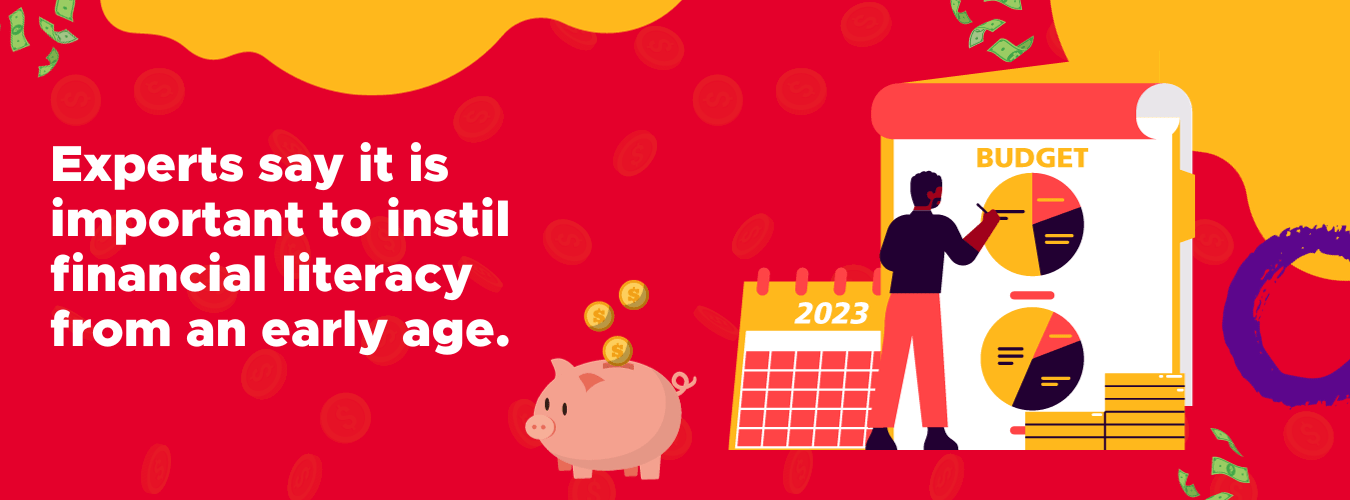
Earning and Managing Pocket Money
If you want your child to earn pocket money, consider allowing them to choose from a set of chores or tasks each week, or create a list with corresponding prices to pay them for household chores or jobs. This approach to children's pocket money not only lets them decide their income but also teaches them the connection between effort and reward.
You might explore the benefits of opening a savings account for your child with online access, enabling them to monitor their funds as they accumulate.
Start by providing them with a piggy bank or savings jar where they can deposit their coins and notes. Younger children benefit from using cash as it’s more tangible, while older ones could opt for direct deposits. As children mature, they can transition to using an EFTPOS card linked to their bank account for transactions.
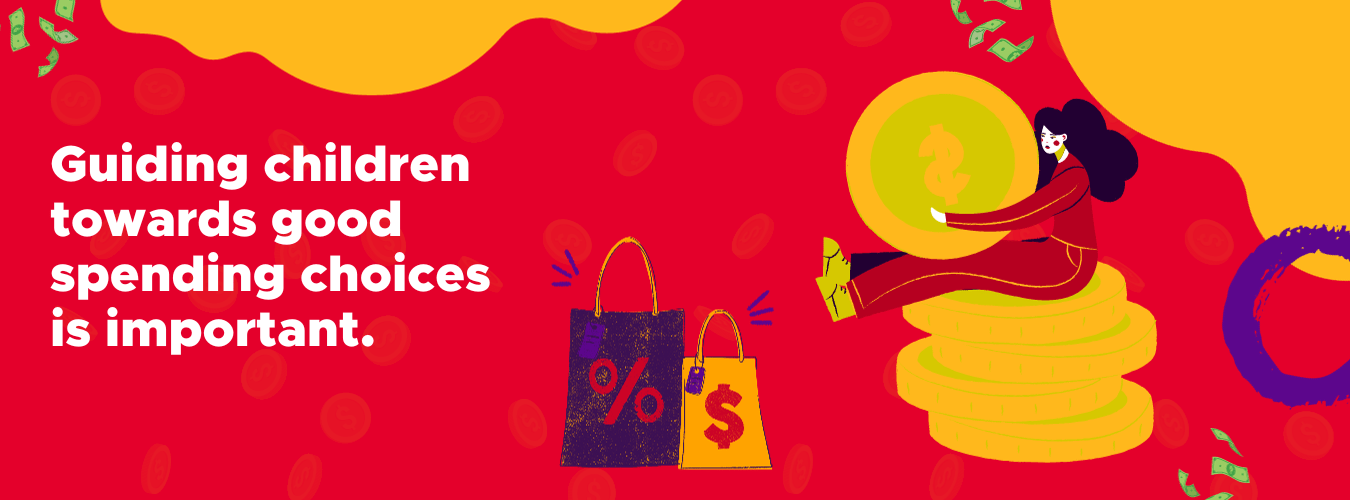
Instilling Saving Habits
Learning to save isn't just about financial habits; it also imparts life skills like goal setting, maturity, and independence. Encourage them to save for short-term goals initially, like a desired toy.
Over time, they'll have more control over how much pocket money they earn, and grasp the concept of delayed gratification, saving up for larger objectives such as paying for their first car. As they become more responsible and start managing their money themselves, consider opening a savings account in their name.
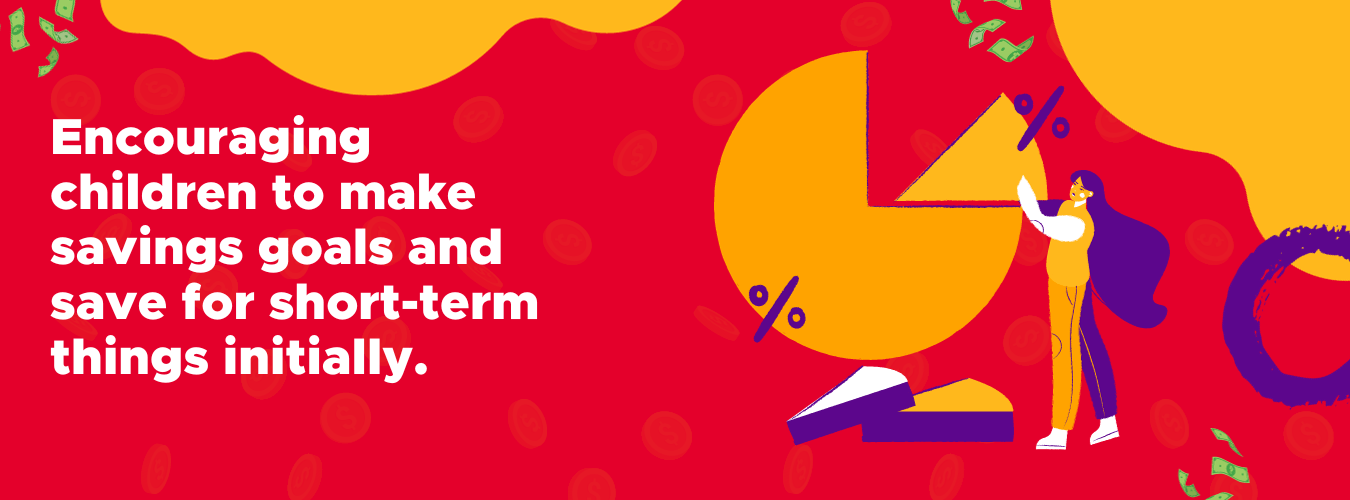
Teaching Wise Spending
Teaching children about spending wisely is crucial to their financial education. While they may have the autonomy to spend their pocket money, guiding them in making sensible choices can prevent impulsive spending and cultivate responsible habits.
Encourage them to think before making a purchase—do they need it? Are there better alternatives? Teach them about prioritising needs over wants. These lessons can help them develop a mindful approach to spending.
The Importance of Financial Literacy
Financial literacy is a skill that children should develop early to ensure they're well-prepared to manage their finances as adults. Incorporating money-related discussions and activities into their education can significantly contribute to their financial literacy.
Consider involving them in household budgeting discussions, helping them compare prices while shopping and explaining basic financial concepts like interest and inflation in age-appropriate ways. This hands-on approach can instil confidence in their financial decision-making abilities.
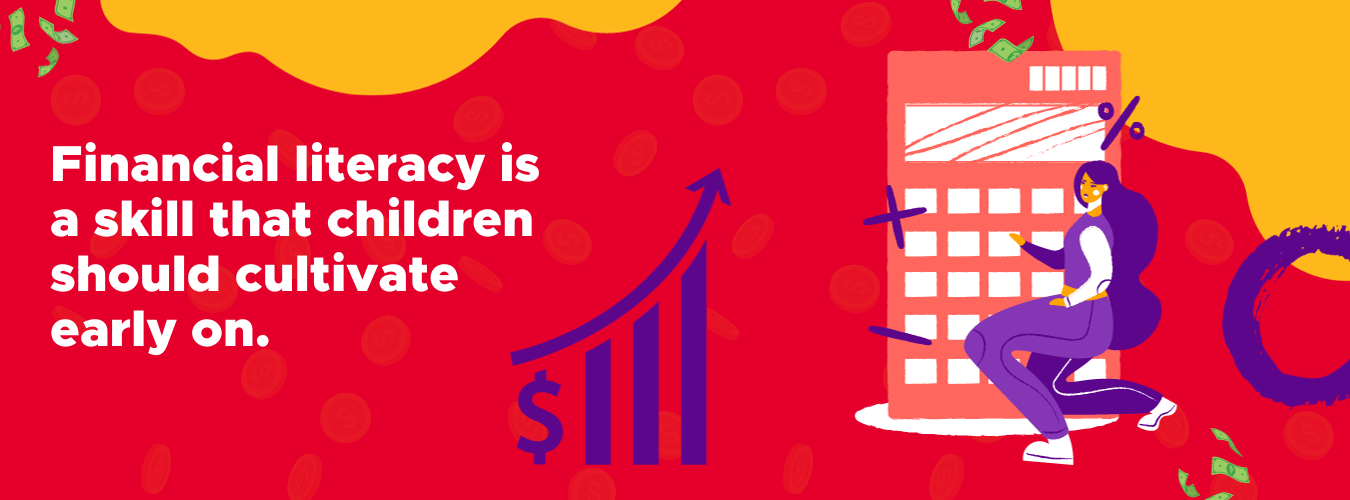
Beyond Pocket Money: Teaching Long-Term Financial Goals
While pocket money provides an immediate lesson in budgeting and spending, it's also an excellent opportunity to introduce the idea of long-term financial goals.
This experience teaches them about patience, setting priorities, receiving pocket money, paying more, and working consistently towards a goal. Engaging them in discussions about savings accounts, investments, and retirement can further broaden their financial perspective.
Balancing Fun and Responsibility
While financial education is vital, it's equally important to have kids strike a balance between learning and enjoying their childhood. Encourage your children to allocate a portion of their pocket money to pay for leisure activities they enjoy.
This helps them understand that financial responsibility doesn't mean sacrificing all enjoyment, but rather finding a harmonious balance between saving, spending, paying back, and enjoying life's pleasures.
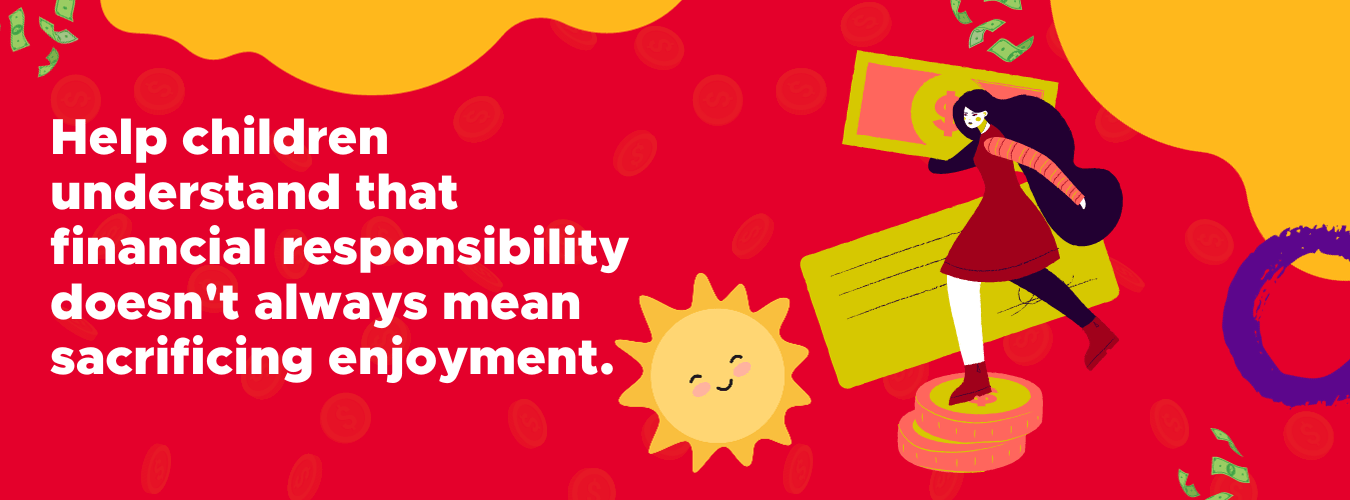
Nurturing Financially Empowered Future Citizens
Teaching kids about pocket money is far more than just handing them a few coins—it's about fostering essential life skills that will guide them through their financial journey.
By instilling responsible earning, hard work, wise spending, and saving habits in paying kids, you're preparing them for the complex financial landscape they'll encounter as adults. Remember that your guidance today will shape their financial attitudes and behaviours for years to come.
As parents, you possess the unique opportunity to empower your children with financial knowledge that will set them on a path to success.
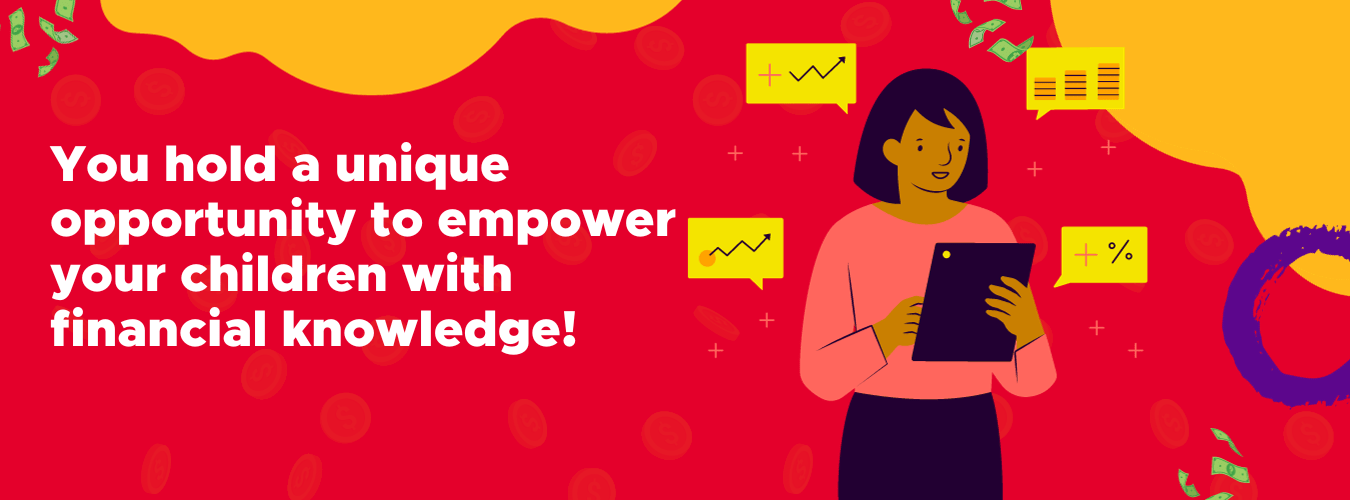
A solid foundation in financial literacy, coupled with strong numeracy and literacy skills, forms the cornerstone of their education. At NumberWorks’nWords, we're committed to supporting your efforts by providing comprehensive after-school tutoring programs that nurture these crucial skills.
Get in touch with your local NumberWorks’nWords centre or book a free assessment today. Together, we can equip your children with the tools they need to navigate the complexities of the financial world and achieve their aspirations.




